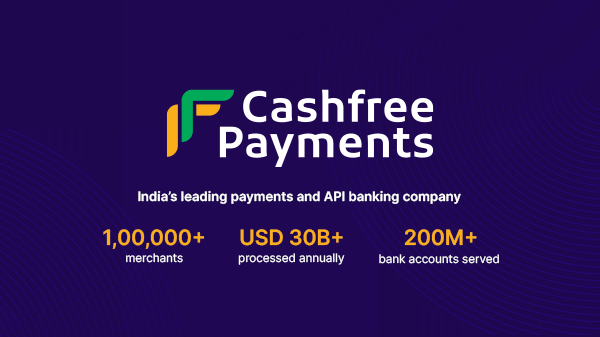Cashfree Payments receives RBI nod to roll out its product enabling purchase of listed shares on foreign exchanges
Bengaluru : Cashfree Payments, a leading payments and API banking solutions company, today announced that it has received a go-ahead from the Reserve Bank of India (RBI) for its cross border payments product. The approval comes upon the company successfully piloting the solution during RBI’s Second Cohort under the Regulatory Sandbox on cross border payments. The product will enable Indian fintech companies to offer the purchase of shares, exchange-traded funds (ETF) units and other assets listed on foreign exchanges via UPI/ Net Banking as a feature to Indian investors. The cross border investments will fall under the ambit of RBI’s Liberalized Remittance Scheme (LRS). As per the RBI, the product can be considered for adoption by regulated entities subject to compliance with applicable regulatory requirements.
One of the most tedious steps for Indians looking to invest in foreign stocks has been funding their overseas accounts. Traditionally, this process needs filling up A2 forms, paying high fixed fees, and even visiting a bank branch in many cases. Cashree Payments’ solution makes the process of payments via UPI, Net Banking and LRS compliance integrated, seamless and fully digital. Investors can start investing with small amounts, as little as INR 1,000. The solution also offers savings on foreign exchange (FX) fees and faster settlements for access to funds.
With this model, the investors will be able to simply login to an App integrated with Cashfree Payments, complete their basic KYC to begin transferring in Indian currency (INR). The company will then convert this transferred amount into foreign currency, like USD, and remit it to the foreign broker, allowing investors to successfully buy international stocks.
While US stocks, mostly of large tech and pharma companies, are the most popular with Indian investors, Cashfree Payments is working with multiple Indian fintech platforms looking to offer cross border investing as a feature.
Reeju Datta, Co-founder, Cashfree Payments said, “We are delighted to have successfully completed the test phase of RBI’s Second Cohort under the regulatory sandbox on Cross Border Payments. This achievement validates our efforts to constantly build innovative and effective solutions in the payments ecosystem. Our cross-border payments platform intends to make investing in foreign stocks a lot simpler and convenient, allowing retail investors to make payments via local payment methods. The product was evaluated on varying parameters, and clearing the evaluation further reiterates the resilience and agility that is a trademark of the Cashfree Payments systems. We look forward to working with the Indian fintech ecosystem and offer access to international investments toIndian investors.”
In September 2021, eight entities including Cashfree Payments were selected for the test phase of RBI’s Second Cohort. Cashfree Payments’ proposition was evaluated on mutually agreed upon test scenarios and expected outcomes on several parameters, such as innovation in cross-border payments, ability to transform the cross-border payments landscape, and leveraging technology to come up with a cost-effective, secure, and transparent system. With the announcement of the exit of the second cohort, the product has been found viable within the boundary conditions defined during testing under the Regulatory Sandbox.
With over 50% market share among payment processors, Cashfree Payments today leads the way in bulk disbursals in India with its product Payouts. Recently, India’s largest lender, SBI invested in Cashfree Payments, underscoring the company’s role in building a robust payments ecosystem. Cashfree Payments works closely with all leading banks to build the core payments and banking infrastructure that powers the latter’s products and is also integrated with major platforms such as Shopify, Wix, Paypal, Amazon Pay, Paytm and Google Pay. Apart from India, Cashfree Payments products are used in eight other countries including the USA, Canada and UAE.

